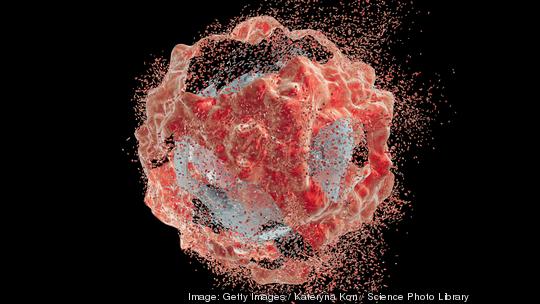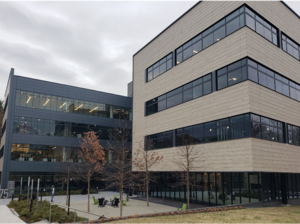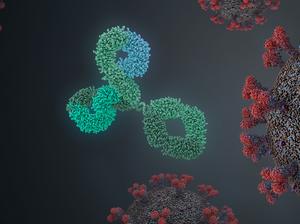
For years, the standard of care in radioimmunotherapy as a cancer treatment has relied on beta decay. In that process, a neutron breaks down, changes into a proton and emits a high-energy beta particle, killing surrounding cells — tumor cells, but also normal cells that happen to be nearby.
Now, a new startup spun out by MPM Capital is working on making radioimmunotherapy a cleaner, more targeted process. Aktis Oncology, which emerged from stealth on Thursday, uses a radiotherapy technique that emits alpha particles, which have a shorter path length and significantly higher potency than their beta counterparts, ideally killing solid tumors without wreaking havoc on the patient's body.
CEO Matthew Roden calls it "future of radiopharmaceuticals."
"Our approach is a specifically engineered pharmacology that's designed to deeply penetrate the tumor, to stay in the tumor specifically, or in other words, to have a long residence time in the tumor itself," Roden said. "Then, it clears out of the body as quickly as possible."
Aktis is making its public debut with $72 million in an oversubscribed Series A round co-led by MPM Capital, EcoR1 Capital and Vida Ventures, with participation from Octagon Capital, TCG Crossover, Novartis and Bristol Myers Squibb. Novartis and Bristol Myers Squibb, which have long been leaders in the radiopharmaceutical space themselves, will have observers in Aktis' labs to see whether the startup's alpha particle-driven approach bears fruit.
Roden said Aktis is "well financed to achieve key inflection points" in its preclinical validation process. He declined to say when exactly the startup hopes to begin human trials, but he expects Aktis will be able to provide a solid proof of concept very soon.
"One of the advantages of our approach is our timeline to clinical proof of concept is expected to be shorter than traditional development pathways," Roden said. "Not only does our technology enable rapid optimization and scale-up, but we are using a theranostic approach."
Theranostics is a hybrid term combining therapy and diagnostics. The approach integrates some form of diagnostic testing — in Aktis' case, imaging — to determine a drug's molecular target before delivering treatment. Roden and his team believe the approach will enable clinicians to better determine which patients are best suited for Aktis' treatment before beginning the radioimmunotherapy.
Aktis currently employs about 10 people split across its headquarters in Cambridge and lab space in North Carolina's Research Triangle Park. With the funding, the startup will increase its headcount to 25 by the end of the year and will continue to grow in 2022, Roden said.
"Radiopharmaceuticals is an emerging space where there's a lot of investment and we think has the potential to be a large anti-cancer modality," Roden said. "Our specific approach has specific advantages that we think may confirm leadership in that category."






